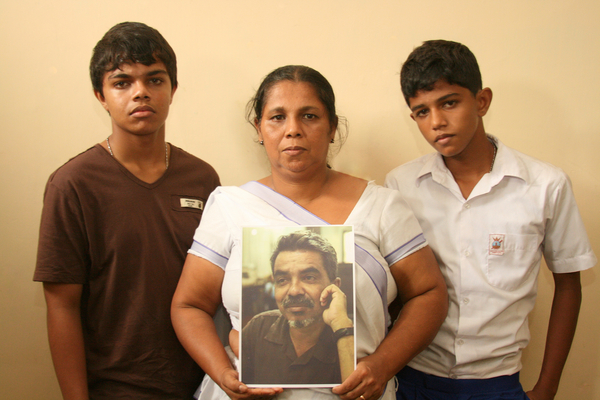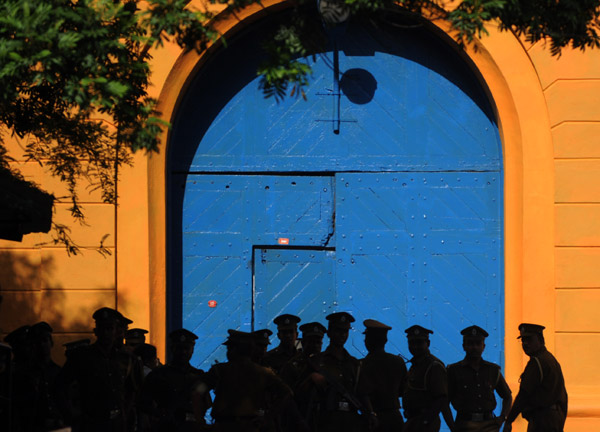
Sandya Eknaligoda wife of disappeared journalist Prageeth Eknaligoda with their two sons Sathyajith Sanjaya and Harith Danajaya.
On Jan. 24, 2010, Prageeth Eknaligoda, a Sri Lankan journalist and cartoonist, disappeared shortly after leaving work. A few days earlier, he had published an article critical of President Rajapaksa. Local residents told the Sri Lankan press that they had seen a white van without numbered plates close to his house around the time of his disappearance.
Prageeth had earlier been abducted in August, 2009 by a group who arrived in a white van; that time, he was released the following day, with his abductors saying that they had made a mistake. But since Jan. 24, 2010, no one has heard from him.
Over recent decades, Sri Lanka has experienced tens of thousands of enforced disappearances during civil conflict, with government forces or their agents detaining people and then denying all knowledge of their whereabouts. In virtually all cases, no one has been held accountable for these crimes.






